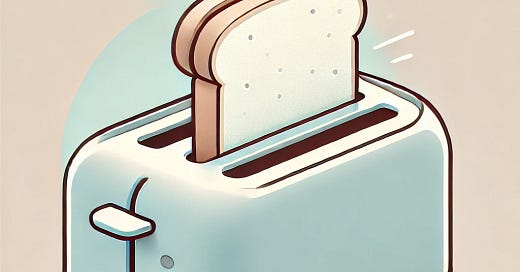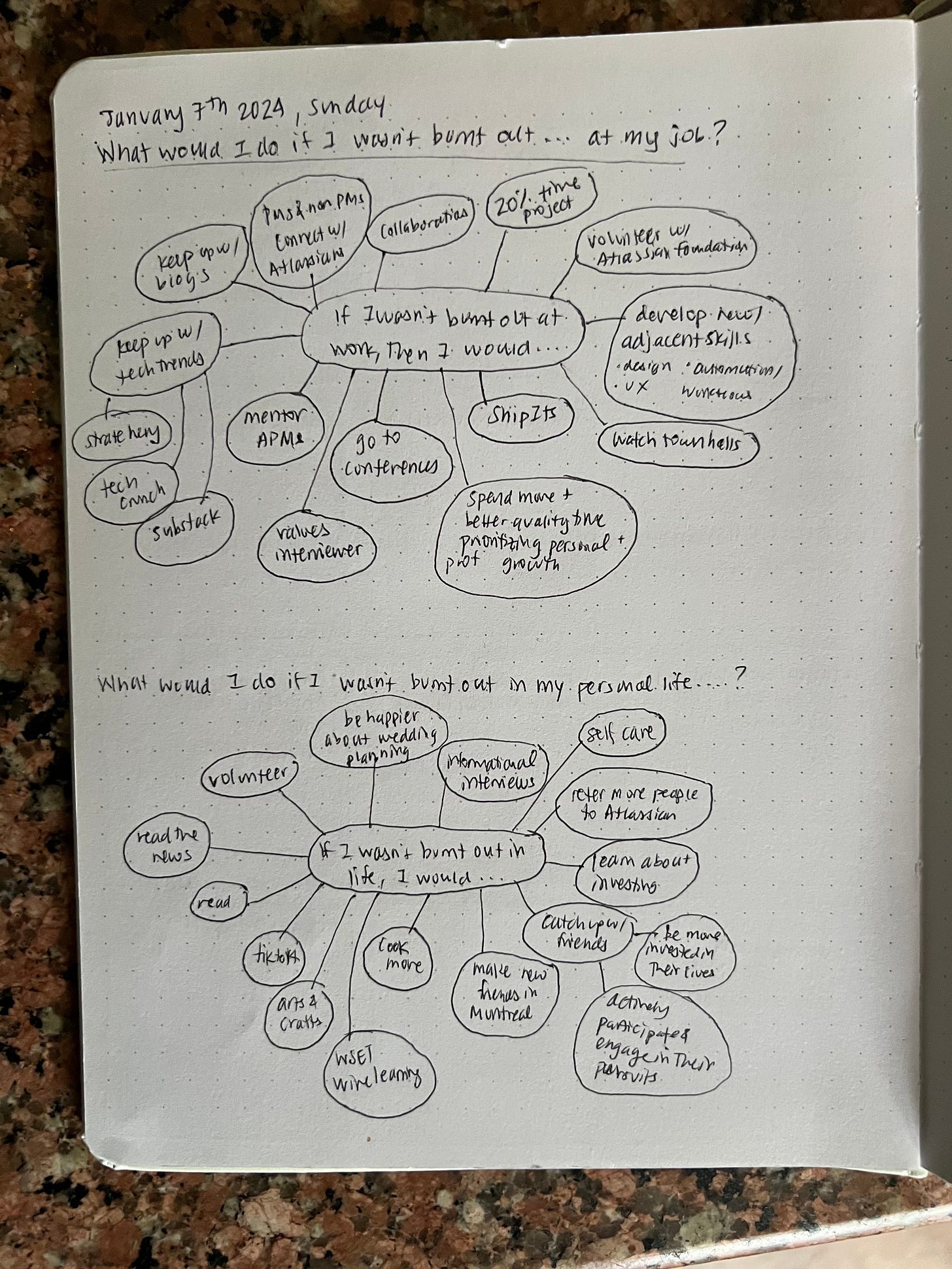What would I do if I wasn’t burnt out?
Journaling during my sabbatical has been a gift. Reading my honest, unfiltered thoughts now makes so much sense.
Before my sabbatical, I struggled to realize that I was burnout. But really, how do you know if you’re burnt out? For me, I had to ask myself:
“What would I do if I wasn’t burnt out that I’m not doing now?”I’ve always loved learning, engaging in conversations, mentoring, volunteering, and pursuing side projects. These activities brought me joy and creativity—even when they added hours to my day. But before my sabbatical, I couldn’t muster the energy for any of them. So it shouldn’t have been a surprise to see every one of those activities end up in the brainstorm of “what would I do if I wasn’t burnt out that I’m not doing now?”
How do I know when I’m un-burnt out?
But six months into my sabbatical, I had a new fear: How will I know if I’ve recovered? What does that look like?
People kept asking, “Why a year off? Why not three or six months?” My answer was simple: I didn’t know how long it would take because I’d never recovered from burnout before. What if even a year wasn’t enough?
Then, while reflecting on my transition from Q1 to Q2 of the sabbatical, I found a journal entry:
I want to call out a specific statement:
“The only way to do your sabbatical right is to not live life like you would with a job.”This thought plagued me through this quarter my sabbatical.
If I had a job, I’d be reading articles, keeping up with trends, chatting with peers, writing—exactly what I found myself doing during my sabbatical. This led to internal conflict: Shouldn’t I be relaxing? Lying on a beach? Frolicking through Montreal’s streets?
The truth? While those things are fun, they’re not entirely fulfilling. By Q3, I’d returned to waking up early for webinars, staying up late reading reports, and brainstorming blog ideas. Initially, I scolded myself for this “unsabbatical behavior,” but then it hit me: This is what it feels like to be reinvigorated about my career and the world.
Burnout had robbed me of my curiosity and love for learning. Taking six months to step away from the grind forced me to feel lost, rediscover what excited me, and naturally return to these fulfilling activities.
TA DA, I’m back baby! I’m UN-burnt out.
Like I said, I’m grateful for these little journal entries I kept before and during my sabbatical, that helped me
Define a baseline of what makes me fulfilled in my career and personal life.
Recognize when burnout was holding me back.
Identify strong leading indicators of being UN-burnt out
What’s next for the last quarter of my sabbatical?
Another major reason for my sabbatical, beyond recovering from burnout, was traveling to India to spend time with my grandparents.
I’m lucky to have three of my four grandparents alive and well in India. As a child, I spent long, slow summers with them. But as I got older, trips became short, jam-packed visits. So this time, I didn’t just want to ‘visit’ my grandparents. I wanted to live with them.
I’ll spend six weeks living with my grandparents, embracing their pace of life. I’m also working on a personal project: creating a video storybook to capture their lives—growing up, getting married, raising a family, and navigating their world.
Want a glimpse into my slow living journey? Follow along on my Instagram
After that, it’s time to wrap up my sabbatical and see where my next adventure takes me ◡̈







Well written Divya! I agree 100% with how one doesn't know it feels otherwise. We call it normalizing a situation or a behavior. If you work continuously you think that is normal and as you rightly pointed out, a few things here and there may seem like you are doing something outside. I can say you have utilized your sabbatical very well and it helps you understand who you are, what interests you, unwind and do things that matter to you most and then return to the rat race. Keep going!
SHES BACK